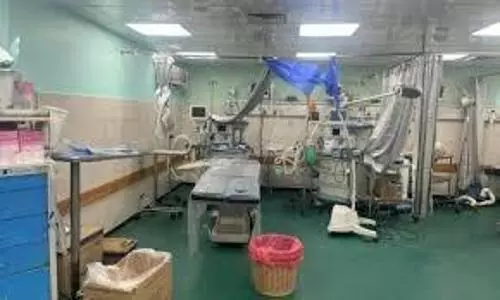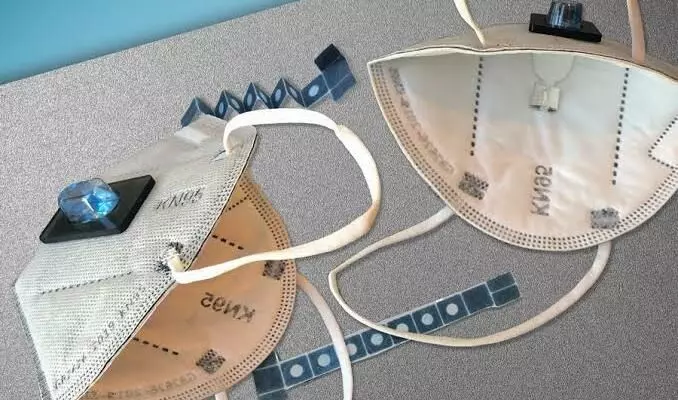
Scientists develop novel facemask not to just protect users from COVID but also detect it
text_fieldsImage: Felice Frankel and MIT News Office
New York: A team of US researchers have developed a novel facemask that not only protects you from getting covid but also detect it and alert the user.
Engineers at MIT and Harvard University have designed a novel face mask that can diagnose the wearer with Covid-19 within about 90 minutes. The masks are embedded with tiny, disposable sensors that can be fitted into other face masks and could also be adapted to detect other viruses.
The button-activated mask, developed by the researchers from the Wyss Institute for Biologically Inspired Engineering at Harvard University and the Massachusetts Institute of Technology, gives results within 90 minutes at levels of accuracy comparable to standard nucleic acid-based diagnostic tests like polymerase chain reactions (PCR). The finding is reported in the journal Nature Biotechnology.
"We have essentially shrunk an entire diagnostic laboratory down into a small, synthetic biology-based sensor that works with any face mask, and combines the high accuracy of PCR tests with the speed and low cost of antigen tests," said Peter Nguyen, a Research Scientist at the Wyss Institute.
"In addition to face masks, our programmable biosensors can be integrated into other garments to provide on-the-go detection of dangerous substances including viruses, bacteria, toxins, and chemical agents," Nguyen added.
The SARS-CoV-2 biosensor is based on the wearable freeze-dried cell-free (wFDCF) technology, which involves extracting and freeze-drying the molecular machinery that cells use to read DNA and produce RNA and proteins.
These biological elements are shelf-stable for long periods and activating them is simple: just add water. Synthetic genetic circuits can be added to create biosensors that can produce a detectable signal in response to the presence of a target molecule.
The wFDCF face mask is the first SARS-CoV-2 nucleic acid test that achieves high accuracy rates comparable to current gold standard RT-PCR tests while operating fully at room temperature, eliminating the need for heating or cooling instruments and allowing the rapid screening of patient samples outside of labs.
"This work shows that our freeze-dried, cell-free synthetic biology techniques can be extended to wearables and harnessed for novel diagnostic applications, including the development of a face mask diagnostic," said Jim Collins, Professor of Medical Engineering & Science at MIT.
Beyond the Covid-19 pandemic, the technology could also be incorporated into lab coats for scientists working with hazardous materials or pathogens, scrubs for doctors and nurses, or the uniforms of first responders and military personnel who could be exposed to dangerous pathogens or toxins, such as nerve gas, the researchers said.
























